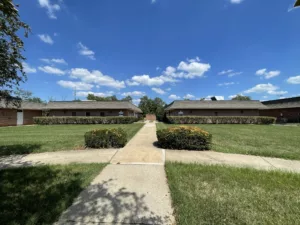Recently, I looked at my electric bill for one of the properties I own, and only avoided the heart attack that would have otherwise occurred because I am a fairly healthy individual.
These days, every time you look at a utility bill, it seems like the price is going up. Utility providers everywhere are requesting and receiving rate hikes to provide the same services and repair or upgrade the infrastructure.
Installing energy-efficient building components is no longer just a nice thing that you do to help save the planet. It’s necessary to save your bottom line.
Fortunately, a program exists called C-PACE, which is available to commercial and multifamily property owners, allowing you to finance the cost of energy-saving retrofits.
What is C-PACE?
Commercial property assessed clean energy (C-PACE, though sometimes referred to as PACE) is a financing tool that allows commercial property owners, including multifamily properties with 5+ units, to finance the upfront cost for energy conservation measures with funding through a voluntary assessment of the property tax bill.
Energy conversation measures (EMC) are the upgrades, retrofits, repairs, and replacements that businesses can implement to become more energy efficient. An ECM should generally aim to achieve savings by reducing the amount of energy or water used by a particular process, technology, or facility – or eliminating the use of fossil fuels counts.
Examples of qualified ECMs include:
- New windows
- Water use reduction
- Renewable energy such as geothermal, wind, or solar
- Indoor air quality improvements
Green banks and third-party financiers typically provide the capital for C-PACE projects. The local government typically acts as the payment collector through the property assessment and sends the payments to the private finance provider. Utility cost savings or revenue from renewable energy may help the owner cover the cost of the assessment, and a property lien secures the investment if there is a foreclosure.
Like other assessments collected as property tax, any past-due payments related to the C-PACE lien take priority over the mortgage and other loans in the event of foreclosure on the property. State and local governments develop the legal, regulatory, and procedural framework for PACE and work with specialty program administrators and finance providers to implement the programs. Utility providers then help to advertise this financing method to their customers.
Locally, Pennsylvania allows individual counties to elect to participate. The map below shows the counties that are participating as of September 2024.

In Maryland, the state mostly administers the program with the county’s consent, though several counties administer their own program and several others have opted out as shown on the map below.

Why participate?
One of the main benefits of the C-PACE program is that property owners can use it to cover 100% of the upfront costs for energy or resilience upgrades. The investments are then repaid over the useful life of the installed equipment. This longer payback period – and lower annual or semi-annual payments – can make upgrades more affordable for property owners.
The assessment also stays with the property in the event of a sale, assuming the buyer agrees to the transfer. Therefore, if the property is sold, the buyer can assume the PACE payments and the benefits from the upgrades. If the buyer does not agree to a transfer, the seller may have to pay off the outstanding amount of the PACE assessment. Because property taxes have high payment rates, there may be lower interest rates, longer loan terms, or even a combination of the two.
C-PACE programs may provide financing for commercial projects such as multifamily residential properties, commercial properties, industrial buildings, or nonprofit properties. Programs may vary based on the government sponsor (statewide or local), financing structures, and eligible measures. As of 2022, more than 30 states in the U.S. have active programs, and there have been more than $4 billion in investments in 2,900 commercial projects.
C-PACE financing generally shares the following key features:
- Provides upfront funding for clean energy projects for property owners generally in the commercial, multifamily, and nonprofit sectors
- Uses property liens to allow consumers to repay the funding on their property taxes over a longer term. This funding is repaid similarly to having additional taxes on the property
- Permits transferability of the assessment upon sale of the property
How does it work?
C-PACE financing may be administered by state governments, local governments, or third-party administrators. State governments must adopt enabling legislation permitting PACE programs within the state in order to authorize programs at the local level. They may choose to administer a statewide PACE financing program. Local governments, then, but adopt authorizing legislation to create local PACE programs following the adoption of the statewide enabling legislation. Local governments may also administer their own PACE programs, but they often act as payment collectors since the repayments are made through property taxes. Third-party administrators may engage in a contract with a government to manage the PACE program. In these instances, the administrator facilitates the issuance and collection of funds.
While the mechanics will vary based on the state and county governments, the general process remains fairly similar. Here is a flow chart illustrating the York County process to provide you with a reference framework.

Modernizing your real estate investments for energy efficiency will continue to be essential to build and preserve generational wealth. By utilizing government-backed resources, savvy investors can increase their cash flow and sustain their investments.
Our team is known for their out-of-the-box insights, allowing investors to grow their investments and income in unexpected ways. Contact us today to schedule a strategy call about how you can improve your commercial real estate investments in Pennsylvania and Maryland.
Videos
Prefer to watch instead of read? Check out Naomi’s video about the C-Pace program:
Sources:
https://pennsylvaniacpace.org/
https://pacpacecounties.org/
https://www.mdcleanenergy.org/md-pace-home/
https://yorkcountypa.gov/1195/Commercial-Property-Assessed-Clean-Energ
https://pennsylvaniacpace.org/faqs/
https://www.epa.gov/statelocalenergy/commercial-property-assessed-clean-energy






